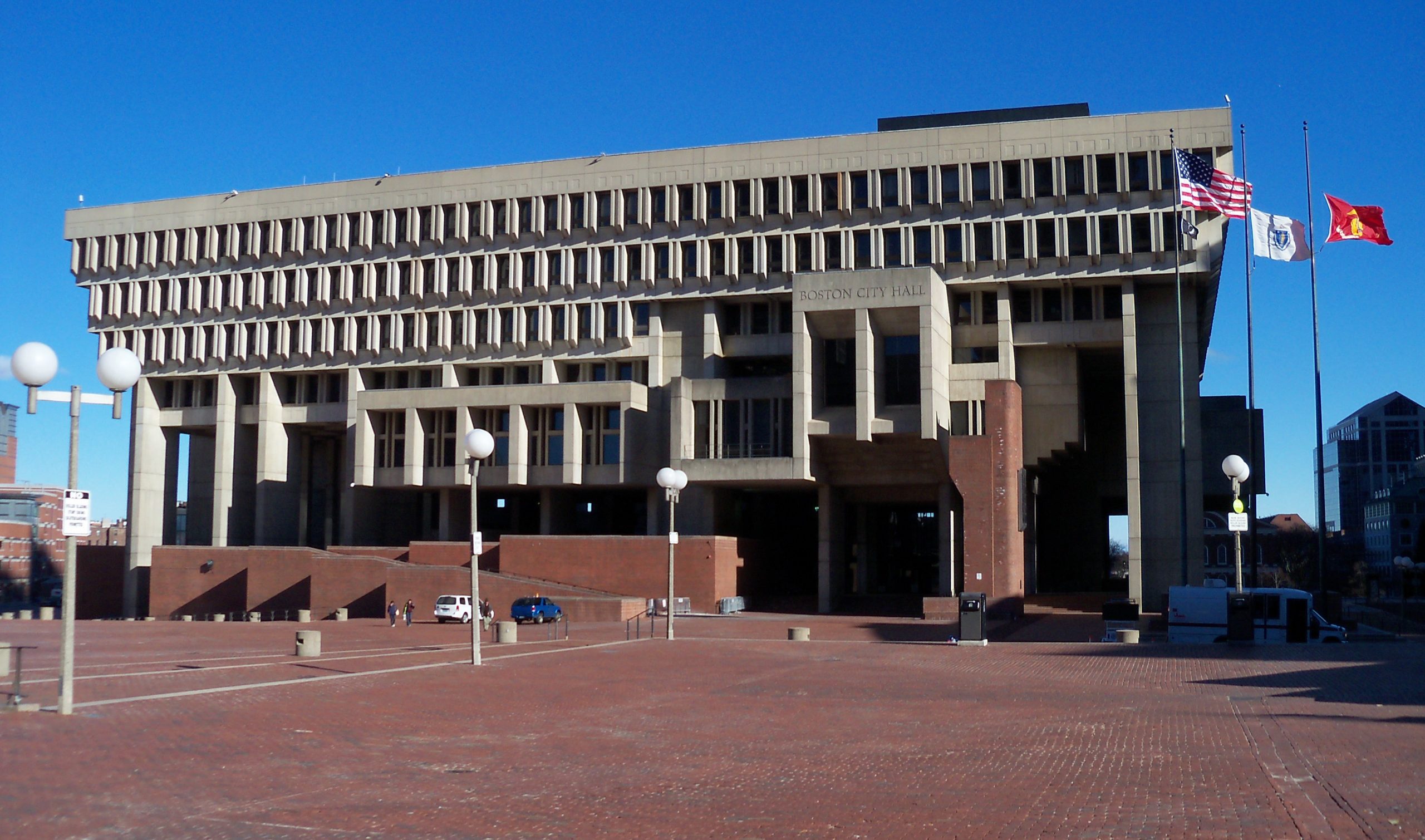OPINION ANALYSIS
Boston violated First Amendment when it rejected Christian flag, court unanimously rules

on May 2, 2022 at 12:51 pm

The Supreme Court ruled unanimously on Monday that the city of Boston violated the Constitution when it rejected an application to fly a Christian flag on one of the three flagpoles in front of city hall. Because the city program that allowed other private groups to raise and fly their own flags was not speech by the city, the court held, the city could not refuse permission to fly a particular flag because of the views that it expressed.
The flag that Harold Shurtleff, the director of a group known as Camp Constitution, wanted to fly on City Hall Plaza in September 2017 featured a red cross on a blue field, set against a white background. When the city denied Shurtleff’s application, Shurtleff went to court, where he alleged that the denial violated (among other things) his right to free speech.
On Monday the Supreme Court agreed. In his opinion for the court, Justice Stephen Breyer explained that the first question before the justices was whether Boston’s flag-raising program amounts to speech by the city, which would allow it to reject flags based on the views that they express. That question, Breyer noted, should be resolved using a “holistic inquiry” that looks at, among other things, history, whether the public would believe that the government or instead a private person was speaking, and whether and to what extent the government has “actively shaped or controlled the expression.”

The Camp Constitution flag.
In this case, Breyer reasoned, although there is a long history of flags conveying “important messages about government” – ranging from respect for someone who has died to the presence of a foreign leader at Blair House, sometimes dubbed “the President’s guest house” – Boston has also “allowed its flag to be lowered and other flags to be raised with some regularity.” As a result, Breyer suggested, members of the public might not necessarily believe that all of the flags at city hall were conveying the city’s message. Moreover, Breyer continued, and perhaps most importantly, the city wielded virtually no control over the messages that the flags in the program conveyed: It had no record of denying any flag-raising requests before Shurtleff, and it did not have any guidelines about what flags were permitted under the program. And because the flag-raising program was not speech by the city, Breyer concluded, the city’s denial of Shurtleff’s request for the sole reason that the flag promoted Christianity discriminated against Shurtleff and Camp Constitution in violation of the First Amendment’s free speech clause.
Five other justices – Chief Justice John Roberts and Justices Sonia Sotomayor, Elena Kagan, Brett Kavanaugh, and Amy Coney Barrett – joined the Breyer opinion. Kavanaugh wrote separately (and briefly) to note that the city had only denied Shurtleff’s request because a city official believed that allowing the flag to be raised outside city hall would violate the Constitution’s establishment clause. The Supreme Court, Kavanaugh emphasized, has made clear that the government does not violate the Constitution when it puts religious people and speech on an equal footing with their secular counterparts. To the contrary, Kavanaugh stressed, “a government may not treat religious persons, religious organizations, or religious speech as second-class.”
Justice Samuel Alito agreed that the city had violated the First Amendment when it rejected Shurtleff’s request, but – in an opinion joined by Justices Clarence Thomas and Neil Gorsuch – he disagreed with the majority’s reasoning. He would have eschewed the multi-factor test that Breyer outlined to determine whether the flag-raising program was government speech and instead would have focused on whether the government “is actually expressing its own views or instead the real speaker is a private party and the government is surreptitiously engaged in the ‘regulation of private speech.’”
Here, Alito explained, the city’s program “cannot possibly constitute government speech” when the city did not do anything to suggest that it was communicating a message through the flags, and in fact the program “squarely indicate[d] an intent” to allow anyone “who met the City’s basic criteria” to participate.
Gorsuch penned his own opinion – joined by Thomas – concurring in the judgment. The error at the core of this case, Gorsuch wrote, was the city’s decision to reject Shurtleff’s request because it feared that allowing him to fly his flag would violate the establishment clause. Gorsuch criticized the Supreme Court’s 1971 decision in Lemon v. Kurtzman, which outlined a multi-factor test for whether a government law or practice violates the establishment clause. That test, Gorsuch wrote, “has long since been exposed as an anomaly or a mistake,” and the Supreme Court has not applied it “for nearly two decades.” Yet state and local governments continue to rely on it, just as Boston did here – a strategy, Gorsuch suggested, that was “as risky as it was unsound.” Because Lemon “ignored the original meaning of the Establishment Clause,” “disregarded mountains of precedent,” and “substituted a serious constitutional inquiry with a guessing game,” Gorsuch concluded, state and local governments should follow the lead of the Supreme Court, which “long ago interred Lemon,” and “let it lie.”
This article was originally published at Howe on the Court.


